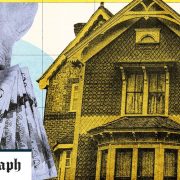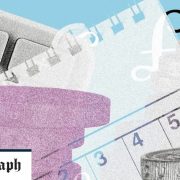Are you keeping up with the Joneses? Not just in terms of the car on your drive or the clothes on your back, but the amount of your home you own? Paying off a mortgage as early as possible is a common ambition among homeowners.
Reaching mortgage-free status is a major step on the way to a financially secure retirement, but figures indicate that this dream is at risk because many more people are carrying mountains of housing debt later in life.
Analysis of data from the Financial Conduct Authority, the City watchdog, by Royal London, the insurer, shows that homeowners are increasingly struggling to pay off huge mortgage loans. The situation has worsened since the financial crisis, despite owners enjoying rock‑bottom interest rates for the past decade.
Much of keeping up with the Joneses involves knowing what the Joneses do. So how much of your property should you own at each stage of your life?
Royal London found that those aged 25 and under typically owned a 10pc-15pc stake in their property, with this share growing to between 15pc and 25pc after the age of 26.
Once homeowners reach their 30s they will typically own more than a quarter of their property, rising to half as they enter their 40s. It is not until the age of 56 that most people start to achieve mortgage freedom, as this is when the typical amount outstanding falls into the range 0pc-30pc. The picture has become bleaker since 2007, when this data was first collected: the equivalent age then was 51.
The average age of a first-time buyer has also risen, Royal London said, from 28 in 2007 to 34 today. Buying later usually means paying off the mortgage later.
Jonathan Harris of Anderson Harris, a mortgage broker, said: “Many homeowners are taking mortgages into later life. Some need a mortgage as they have released cash to spend on school fees or to help offspring on to the housing ladder. Others are taking advantage of low mortgage rates or more flexible deals that allow older borrowers to continue with home loans well into retirement.”
Though it can help to have the cash, the cost of taking a mortgage into later life can be substantial. Interest rates tend to get progressively lower as homeowners build up more equity in their properties, because lenders consider them a safer bet. But people who are still borrowing large sums face much higher rates.
Typically, customers borrowing less than 75pc of the value of their home will be offered lower rates than those above this level, with the very lowest rates being enjoyed by homeowners who borrow 60pc or less.
The lowest rate currently available to homeowners with a 10pc deposit is 1.78pc, but a customer who has a 25pc stake in their property would be able to achieve a rate as low as 1.49pc. This would result in monthly payments of £683 on a loan of £228,147, the average house price, considerably less than the £848 the other borrower would pay.
House price growth has often helped to improve homeowners’ financial situation. However, prices are now stalling in many areas, which could pose problems.
Becky O’Connor of Royal London said: “For those who already own their home, house price inflation is a windfall, giving them a bigger deposit when they remortgage and enabling them to access lower mortgage rates.
“But those still waiting to buy a home while prices are rising must stretch themselves and then face the likelihood of being stuck paying higher rates for longer if house price growth remains relatively flat.”
Mrs O’Connor said that, rather than relying on house price growth, making regular overpayments on the mortgage was the best way to pay it off sooner. Small overpayments today can shave years off, she said. Mr Harris suggested that customers should try to reduce their mortgage term each time they remortgaged.
“With interest rates still very low, when you come to remortgage you might be able to switch to a slightly shorter term, assuming you can still afford it, in order to be mortgage-free sooner. Even a year off the mortgage will make a difference,” he said.
He said that, while it might be tempting to release cash from a property when remortgaging, this should be avoided if possible. “If you increase your borrowing to pay for an extension or to buy a new car, it can add tens of thousands to the overall cost,” he said. “Be disciplined and stick to remortgaging at the same level.”
Such is the perilous state of many older people’s finances that a new generation of mortgages has been launched for homeowners who are forced to take their loans into retirement.
Retirement interest-only (“Rio”) deals let borrowers take out loans with no end date, meaning they can potentially be paying them off years or even decades into their retirement. But given the cost of moving home, this may be cheaper than downsizing.
Mr Harris said: “The high cost of stamp duty is making it harder to move, with many choosing to stay put and extend rather than spend tens of thousands of pounds on the tax. This is further clogging up the housing market as a whole, as there are fewer transactions and less choice of property for sale for those who do wish to move.”
For the week’s most important personal finance news, analysis and expert advice, from pensions and property to investment ideas and savings tips, sign up to our weekly newsletter.
























Comments